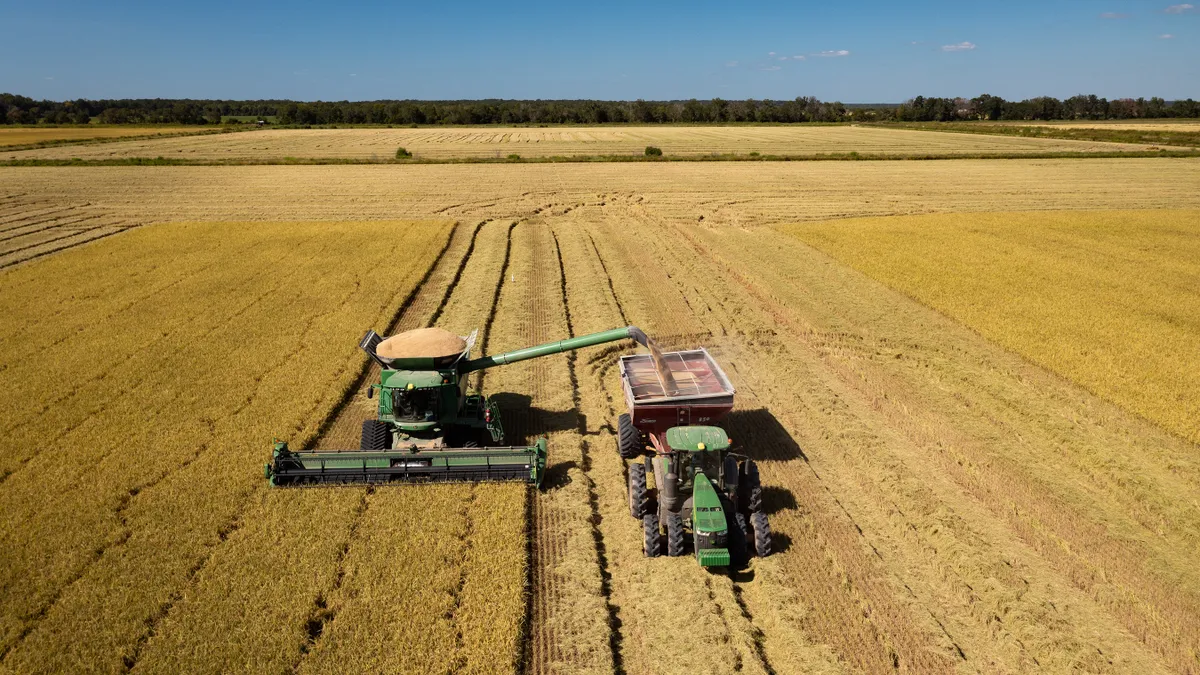Dive Brief:
-
U.S. lawmakers are pushing to prioritize domestic commodities within foreign aid programs for inclusion in this year's farm bill.
-
The American Farmers Feed the World Act of 2023 , co-sponsored by Rep. Tracey Mann, R-Kan., would require at least half of all Food for Peace funds to be used for purchasing domestic commodities and shipping them to the destination country.
-
Over the years, foreign assistance programs have transferred cash or purchased foreign commodities instead of using primarily U.S. commodities, lawmakers argue . The bipartisan effort has widespread support from more than 50 organizations.
Dive Insight:
The Food for Peace Act supplies food aid to millions around the world, and the program is meant to help expand international trade and foster U.S. foreign policy through the deployment of agricultural surpluses. Mann said the “original intent” of the bill was lost somewhere along the way, and taxpayer dollars went to food purchases from foreign competitors.
“This shift has diminished transparency and accountability,” he said in a statement.
The proposal would require at least half of all Food for Peace funds to be used for purchasing domestic commodities and shipping them to the destination country, which supporters claim would reduce overhead costs and preserve resources. In 2022, the U.S. Agency of International Development provided $2.6 billion in Food for Peace assistance , procuring nearly 1.8 million metric tons of food from the U.S.
The current farm bill is set to expire Sept. 30, providing a critical opportunity for action on the issue, supporters say. In addition to Mann, co-sponsors of the legislation include Rick Crawford, R-Ark., John Garamendi, D-Calif., and Jimmy Panetta, D-Calif.
Brent Cheyne, president of the National Association of Wheat Growers, called the bipartisan effort a “crucial step toward renewing the role of American agriculture in fighting global hunger.”
“It demonstrates our commitment to providing food aid to vulnerable populations while supporting our farmers,” he added.
Representatives introduced the bill on June 22 . It was subsequently referred to the Committee on Agriculture and Committee on Foreign Affairs for further consideration.











